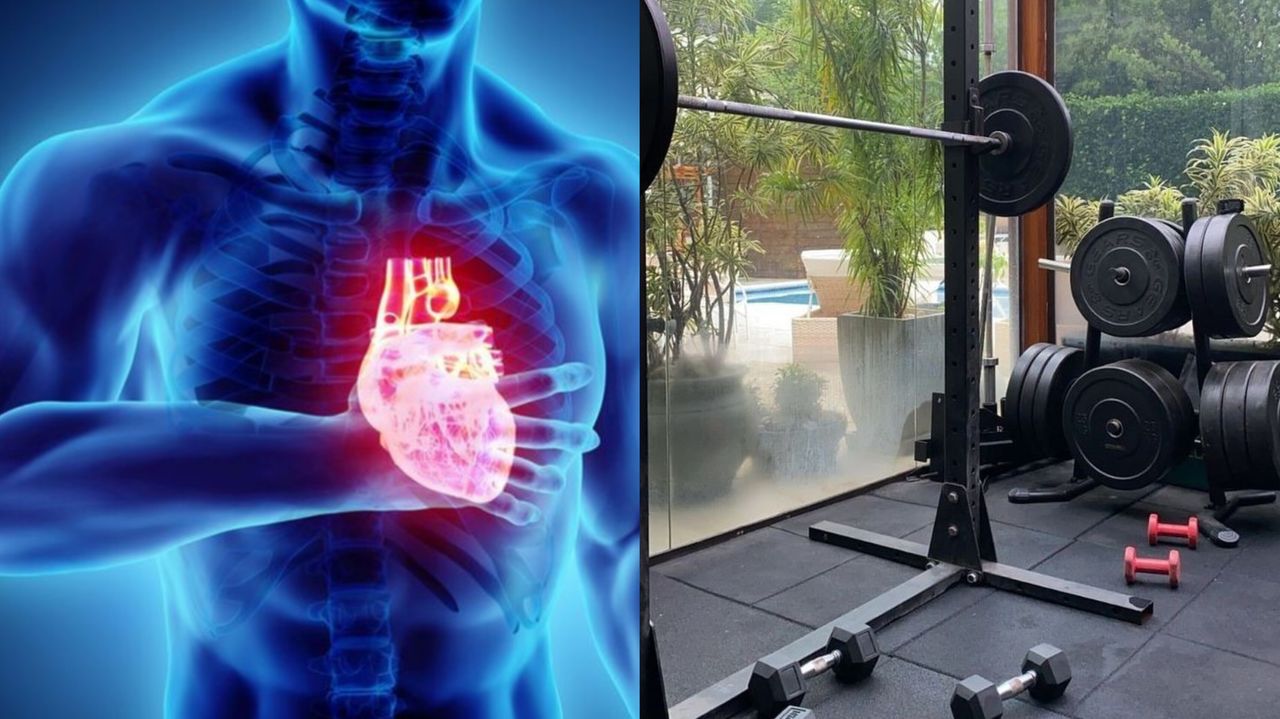Engaging in regular physical exercise is crucial for maintaining cardiovascular health and overall well-being. However, pushing the boundaries of...
Vous n'êtes pas connecté
- English
- Français
- عربي
- Español
- Deutsch
- Português
- русский язык
- Català
- Italiano
- Nederlands, Vlaams
- Norsk
- فارسی
- বাংলা
- اردو
- Azərbaycan dili
- Bahasa Indonesia
- Հայերեն
- Ελληνικά
- Bosanski jezik
- українська мова
- Íslenska
- Türkmen, Түркмен
- Türkçe
- Shqip
- Eesti keel
- magyar
- Қазақ тілі
- Kalaallisut ; kalaallit oqaasii
- Lietuvių kalba
- Latviešu valoda
- македонски јазик
- Монгол
- Bahasa Melayu ; بهاس ملايو
- ဗမာစာ
- Slovenščina
- тоҷикӣ ; toğikī ; تاجیکی
- ไทย
- O'zbek ; Ўзбек ; أۇزبېك
- Tiếng Việt
- ភាសាខ្មែរ
- རྫོང་ཁ
- Soomaaliga ; af Soomaali
Rubriques :
 Maroc - NEWSDAY.CO.TT - A la Une - 13/Aug 05:37
Maroc - NEWSDAY.CO.TT - A la Une - 13/Aug 05:37
Signs, symptoms, risk factors of sepsis
Dr Maxwell Adeyemi SEPSIS IS the body’s extreme response to an infection. It is a condition that arises when the body’s response to an infection is mismanaged, resulting in fatal widespread organ malfunction and inflammation. It is a life-threatening emergency. In normal physiology of the body, white blood cells are typically sent to the infection site by the immune system in response to the onset of an infection, such as one brought on by bacteria, viruses, fungi, or parasites. Sepsis, on the other hand, is characterised by an uncontrolled immune response that might start to damage the body’s own tissues and organs. Although the precise causes of sepsis are complex and not fully understood, it is believed that an excessive release of inflammatory chemicals called cytokines, which can cause systemic inflammation throughout the body, is a contributing factor. The poor supply of oxygen and nutrients to crucial organs including the heart, lungs, kidneys, liver, and brain due to this inflammation can decrease blood flow. Signs and symptoms of sepsis Fever: Sepsis often causes a high body temperature, although in some cases it can also cause abnormally low body temperature. Rapid heart rate: The heart rate may be significantly increased, often exceeding 90 beats per minute. Rapid breathing: Breathing may be fast and shallow. A respiratory rate higher than 20 breaths per minute is common in sepsis. Confusion or altered mental state: Sepsis can affect the brain and cause confusion, disorientation, or difficulty concentrating. Decreased urine output: Sepsis can impair kidney function, resulting in reduced urine production. Low blood pressure: Sepsis can cause a drop in blood pressure, leading to dizziness, light-headedness, or fainting. Skin changes: The skin may appear mottled, pale, or discoloured. It may also feel cool to the touch. Increased heart rate: The heart may beat faster than usual, and a weak pulse may be present. Severe pain: Some individuals with sepsis experience severe discomfort or pain, often localised to the site of infection. Shortness of breath: Breathing may become rapid and laboured, and the person may experience difficulty breathing. Sepsis and the female reproductive system Any organ system, including the reproductive system, is susceptible to the potentially fatal illness caused by sepsis. While infections of the lungs, urinary tract, or abdomen are the ones most frequently linked to sepsis, diseases of the reproductive organs, especially during or after surgical operations that are poorly managed involving the reproductive system, can also cause sepsis. Causes of sepsis in the reproductive system Infections resulting from gynaecological surgeries like hysterectomy or caesarean section, as well as infections caused by pelvic inflammatory disease (PID), postpartum infections, post-abortion infections, or infections after other infections can all cause sepsis in women’s reproductive health. These infections may be brought on by fungus, viruses, or bacteria. PID (pelvic inflammatory disease): This an illness of the female reproductive system typically brought on by a STI like chlamydia or gonorrhoea. The infection has the potential to spread and cause sepsis if left untreated. Postpartum infections: After giving birth, infections can happen, especially if there was a protracted labour, a C-section, or if the mother had particular risk factors. Sepsis can develop from uterine infections or surgical wounds if they are not treated rightly. Unsafe abortions: In areas with limited access to safe and authorised abortions, some people may turn to risky procedures that might result in life-threatening infections. Sepsis can happen if an infection spreads and is not properly treated. Insertion of an intrauterine device (IUD): This carries a slight risk of infection, notwithstanding its rarity. Sepsis can develop if an infection happens and is not managed. Risk factors of sepsis Certain factors can increase the risk of developing sepsis in reproductive health. These may include: Age: The risk of sepsis increases with age, particularly in individuals who are very young or elderly. Newborns and infants, as well as older adults, have weaker immune systems, making them more susceptible to infections and complications. Weakened immune system: A weakened immune system can result from various factors, such as chronic illnesses, eg HIV/AIDS, cancer, diabetes, or autoimmune disorders. Certain medications, such as immunosuppressants or corticosteroids, can also compromise the immune system and increase the risk of sepsis. Chronic diseases: People with chronic diseases, such as kidney disease, liver disease, lung disease (eg chronic obstructive pulmonary disease) or heart disease, have a higher risk of developing sepsis. These conditions can impair the body’s ability to fight infections effectively. Hospitalisation or recent surgery: Hospitalised patients, especially those in intensive care units (ICUs), are more susceptible to healthcare-associated infections, which can lead to sepsis. Invasive medical procedures, surgery, or the use of medical devices (eg urinary catheters, ventilators) can introduce pathogens into the body, increasing the risk. Presence of infections: Infections anywhere in the body can potentially lead to sepsis. Common sources include pneumonia, urinary tract infections (UTIs), abdominal infections (such as appendicitis or peritonitis), skin infections, or infections in surgical wounds. Bacterial, viral, or fungal infections can all contribute to sepsis. Poor hygiene: Lack of proper hygiene, both personal hygiene and environmental cleanliness, can increase the risk of infections that may progress to sepsis. This is particularly relevant in settings with limited access to clean water, sanitation, or healthcare facilities. The post Signs, symptoms, risk factors of sepsis appeared first on Trinidad and Tobago Newsday.
Articles similaires
Long COVID inflicts deep scars on the lungs, targeting specific cells could reverse damage
The long-term effects of respiratory viral infections such as COVID-19 are a major public health burden. Some estimates suggest over 65 million people...
Long COVID inflicts deep scars on the lungs, targeting specific cells could reverse damage
The long-term effects of respiratory viral infections such as COVID-19 are a major public health burden. Some estimates suggest over 65 million people...
Top 8 Immune-Boosting Foods You Should Include in Your Diet
A strong immune system is crucial for defending your body against illnesses and infections. While a balanced diet is essential for overall health,...
Sneezing with Force: The Danger of Rib Injuries
Sneezing is a natural and involuntary reflex that helps clear the nasal passages of irritants, but when done with excessive force, it can pose...
U.S. patient dies from rare mosquito-borne disease
A person in the northeastern U.S. state of New Hampshire has died after contracting the rare mosquito-borne eastern equine encephalitis (EEE) virus,...
Breast arterial calcifications on mammograms may indicate higher cardiovascular risk
Heart disease risk assessment tools specific to women remain lacking, despite the fact cardiovascular disease is the leading cause of mortality in...
The Power of Rituals: Small Daily Habits That Transform Your Health
In our fast-paced lives, it's often the small, consistent actions we take each day that have the most profound impact on our well-being. Rituals, or...
Scientists: chewing muscles and teeth may predict heart attack risk 15:57
Obstructive sleep apnea syndrome (OSA) causes breathing to pause during sleep, increasing the risk of dementia, cardiovascular disease and other...
Common blood pressure drug strongly linked to deadly heart disease
Sudden cardiac arrest is a serious and unexpected event where the heart suddenly stops pumping blood effectively. This can cause a person to lose...
Les derniers communiqués
-
Aucun élément








